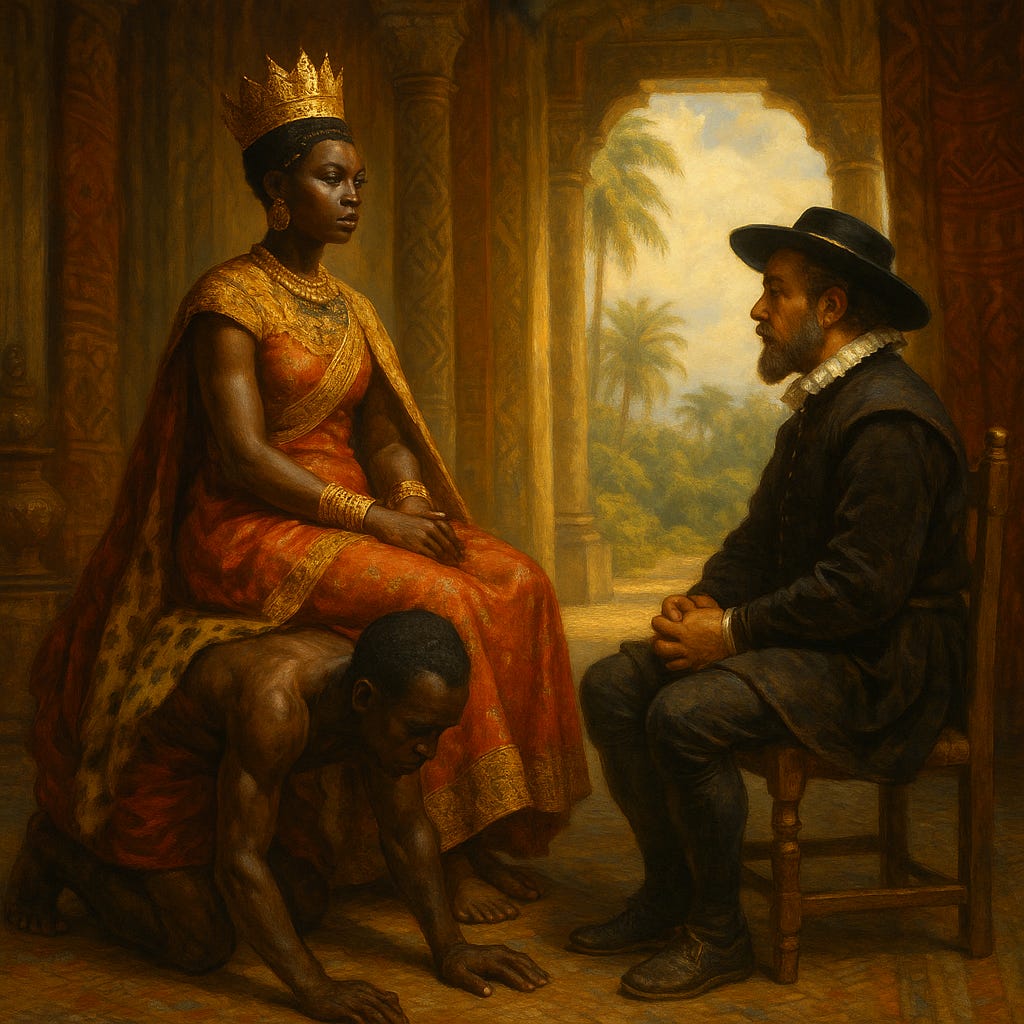How an Angolan Queen Faced Portugal Eye to Eye
In 1622, Nzinga turned humiliation into power when faced with Portuguese dignitaries
Alkebulanians,
It’s true African history time…
Some leaders are remembered for their victories in war, others for the wealth of their kingdoms. Queen Nzinga of Ndongo and Matamba is remembered for both.
There is, however, one moment in her life that shows the kind of power she carried before a single sword was drawn.
PAY ATTENTION
The year was 1622. She entered the governor’s hall in Luanda, summoned to negotiate with the Portuguese. These were men who believed themselves the masters of the Atlantic world.
They came with ships, with muskets, with priests to bless their conquest. But they also came with games. Political theatre. Insults disguised as diplomacy.
When Nzinga arrived, the governor sat in a chair at the centre of the room.
He had his desk, his seat and his attendants. For Nzinga? Nothing.
No chair, no space at the table, no sign she was to be treated as an equal.
That wasn’t a mistake. It was staged humiliation. To force her to stand while he sat, to make her body language speak the words she would never say, ‘I am beneath you.’
But Nzinga did not flinch. She turned to one of her attendants, motioned with calm certainty, and he dropped to his knees.
She sat on his back and looked the governor in the eye.
From that position, not lower, not lesser, she negotiated.
That moment is why Nzinga’s name lives centuries later. It wasn’t simply about a chair. It was about refusing the script written for her.
She understood that politics is theatre, and she seized control of the stage. She would not bow, not even by posture. She would make her own throne.
And she carried that same defiance beyond the governor’s hall.
For the next four decades, she resisted Portuguese expansion.
She outlasted governors and generals, shifted alliances with precision and even allied with the Dutch when it suited her. When war pressed hardest, she retreated into the hills and launched guerrilla campaigns, striking from forests the Europeans could not master. She turned the terrain into a weapon, just as she had turned humiliation into dominance in that first meeting.
This is what I see when I look at Queen Nzinga, not a woman surviving colonial pressure but a strategist shaping her own destiny.
She was fluent in politics, fluent in war, fluent in survival.
She knew when to fight and when to parley.
She knew that leadership meant creating symbols her people could carry in their hearts. Sitting on a human throne was one of those symbols.
It said: We will not stand beneath anyone.
That’s the lesson.
Too often, we’re told Africans were always on the defensive, reacting to Europe, smaller and weaker. But Nzinga’s life tells another story. She was not reacting. She was dictating terms, bending circumstances, forcing opponents to adjust to her.
When I picture her in that room, I see a queen who made her own dignity and through that act, showed us what power looks like when you take control of your own destiny.




